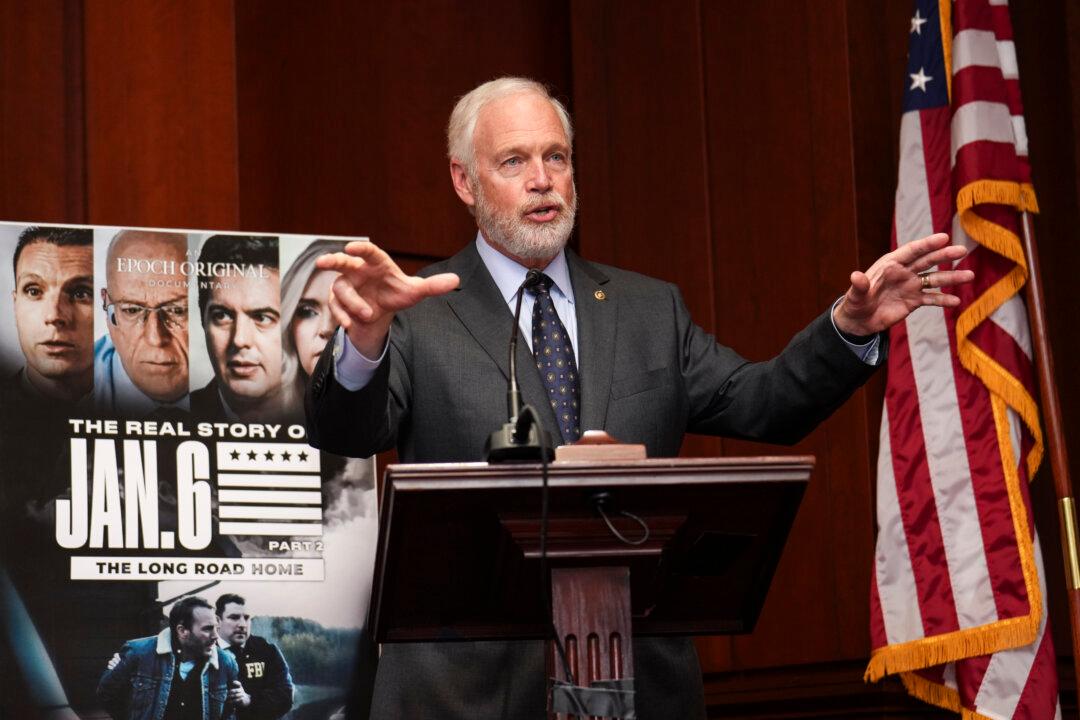WASHINGTON—Sen. Ron Johnson (R-Wis.) praised The Epoch Times’ new documentary exploring the events of Jan. 6, 2021, at the U.S. Capitol and their effects on American life.
The documentary, “The Real Story of Jan. 6 Part 2: The Long Road Home," was screened at the U.S. Capitol on Jan. 9 in an event hosted by Mr. Johnson.





